Gavin Cook
How COVID-19 has Impacted American Attitudes Toward China: A Study on Twitter
Aug 25, 2021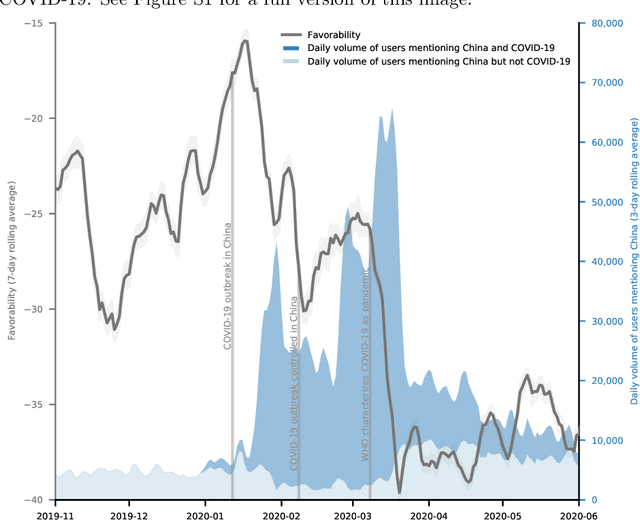
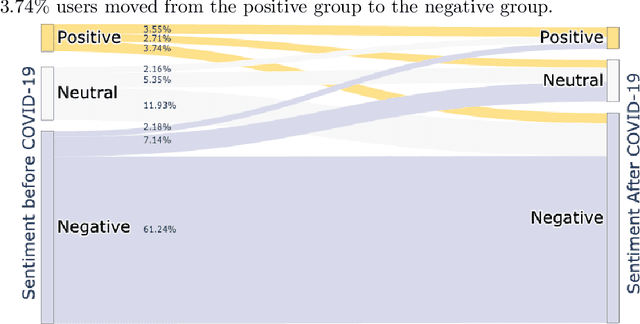
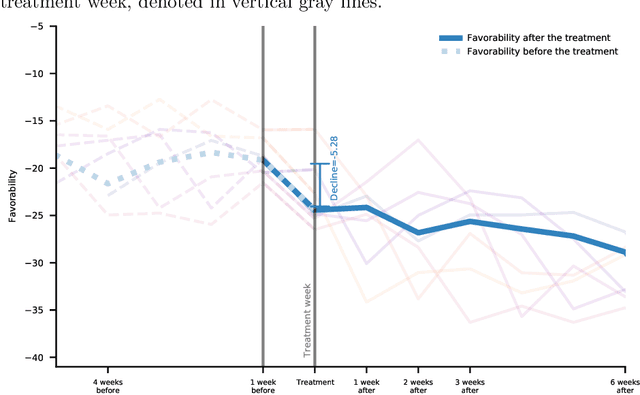
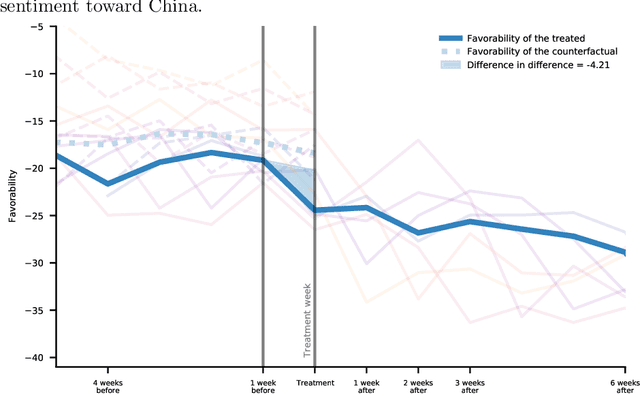
Abstract:Past research has studied social determinants of attitudes toward foreign countries. Confounded by potential endogeneity biases due to unobserved factors or reverse causality, the causal impact of these factors on public opinion is usually difficult to establish. Using social media data, we leverage the suddenness of the COVID-19 pandemic to examine whether a major global event has causally changed American views of another country. We collate a database of more than 297 million posts on the social media platform Twitter about China or COVID-19 up to June 2020, and we treat tweeting about COVID-19 as a proxy for individual awareness of COVID-19. Using regression discontinuity and difference-in-difference estimation, we find that awareness of COVID-19 causes a sharp rise in anti-China attitudes. Our work has implications for understanding how self-interest affects policy preference and how Americans view migrant communities.
Do Mass Media Shape Public Opinion toward China? Quantitative Evidence on New York Times with Deep Learning
Dec 08, 2020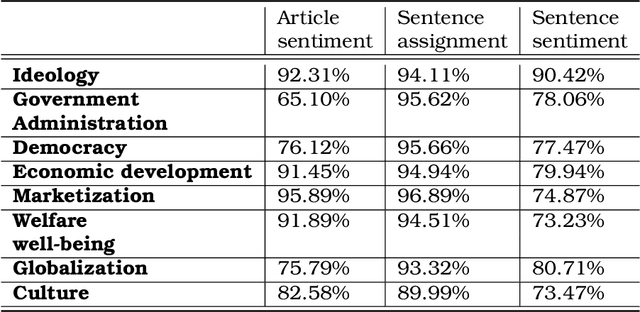
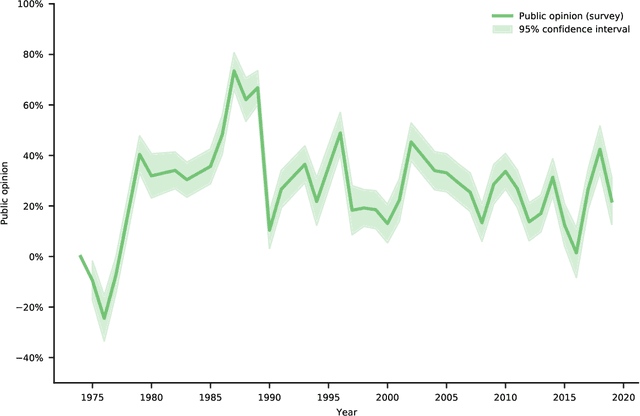
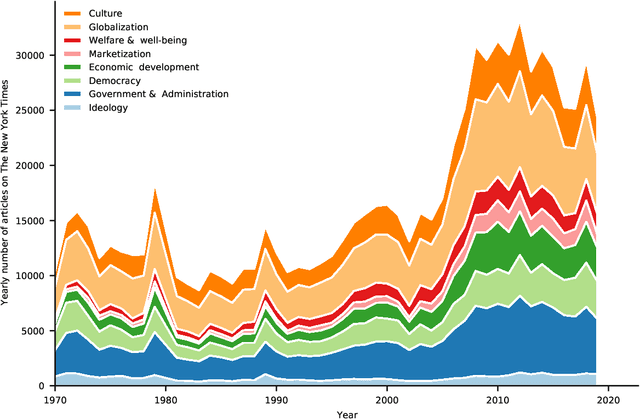
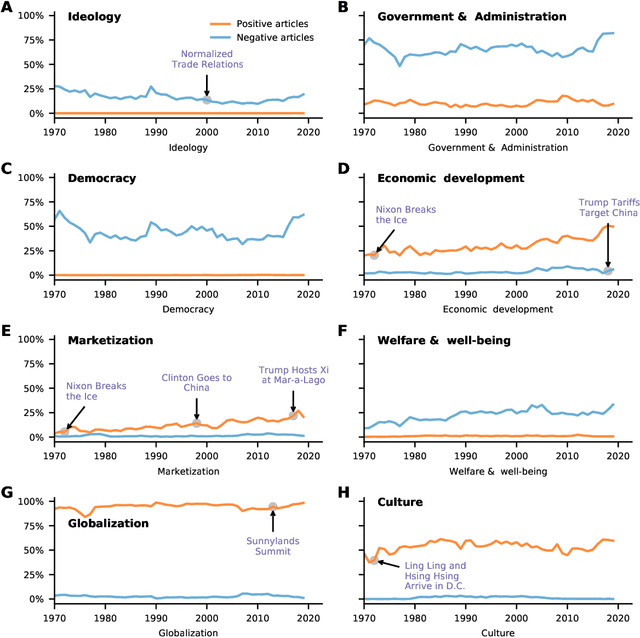
Abstract:Do mass media influence people's opinion of other countries? Using BERT, a deep neural network-based natural language processing model, we analyze a large corpus of 267,907 China-related articles published by The New York Times since 1970. We then compare our output from The New York Times to a longitudinal data set constructed from 101 cross-sectional surveys of the American public's views on China. We find that the reporting of The New York Times on China in one year explains 54% of the variance in American public opinion on China in the next. Our result confirms hypothesized links between media and public opinion and helps shed light on how mass media can influence public opinion of foreign countries.
 Add to Chrome
Add to Chrome Add to Firefox
Add to Firefox Add to Edge
Add to Edge